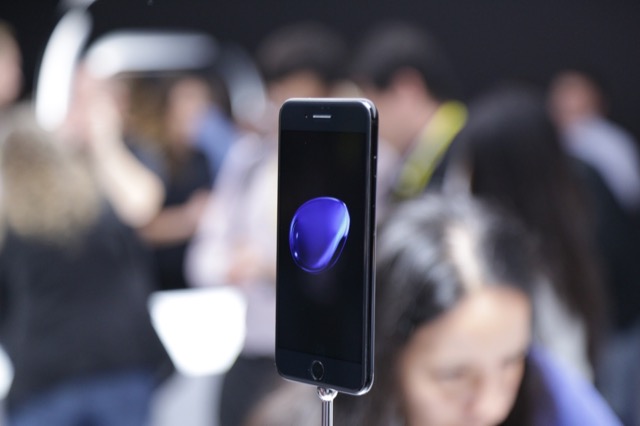| Apple looking to bring more of its chip business in-house, Instagram continues its assault on Snapchat and Qualcomm bites back. All that and more in The Daily Crunch for April 11, 2017. 1. Apple might take control of its own power management chips Reports earlier this year suggested Apple would be taking ownership of the development of its own mobile graphics chips, and now a new claim suggests it could do its own power management chip, too. Apple already makes its own SoC for iPhone and iPad, and derives big gains in performance as a result. It also created its own co-processor for handling motion tracking data, and now it could own almost all of the key processing components, which would allow for new levels of performance optimization. In a smartphone world with increased similarity of products across the board, those gains could be key to keeping an edge. 
2. Instagram Direct mashes up permanent and expiring messages Instagram is baking ephemeral messaging into its permanent messaging services, meaning you can opt to sent messages that expire alongside those that don't. Seems like it could generate some confusion, but Facebook's grand strategy of copying and tweaking Snapchat's offerings isn't without a fair number of failures, so I wouldn't be surprised if this turns out to be one. 3. RetailMeNot retails itself for $630 million RetailMeNot got picked up by Harland Clarke, an investment firm subsidiary that offers payment and marketing services. It's a return to private operation after the company went public in 2013. Couponing space continues to shrink. 4. Qualcomm says Apple doesn't give it enough credit Qualcomm's countersuit against Apple, filed as a response to the billion dollar lawsuit filed by the fruit company in January, says that Apple doesn't give it enough props for its contribution to the company's success. Careful Qualcomm: Apple is building a lot more of its own chips, and maybe it'll extend that to wireless chips, too. 5. Sean Parker's cancer institute might have a test for cancer treatment response Napster founder Sean Parker's cancer immunotherapy institute might have found a way to test in advance whether a patient will respond well to treatment. The test applies specifically to melanoma patiens, but it could save people a lot of time and pain, if it proves truly effective. 6. Autonomous cars could hand up to a quarter of U.S. driving by 2030 Self-driving could be a staple of U.S. urban car traffic by 2030, according to a new study. The conditions are right for autonomous electric vehicles, operating as part of on-demand taxi fleets, to account for up to 25 percent of U.S. driving miles in just over 10 years' time, the report suggests. 7. GoPro wants to buy your old GoPro so it can move inventory of new ones GoPro has an issue that's fairly common among tech products these days: Users find its old products good enough, and don't necessarily see the need to upgrade to the next model. The company is offering trade-in credit on new cameras in exchange for old ones, as a way to encourage upgraders. Better than building in planned obsolescence. Here's a thing that's the opposite of obsolete: Our new weekly startups newsletter, curated by Anthony Ha. Just follow the link below and check the "TC Startups" checkbox to subscribe. 
|